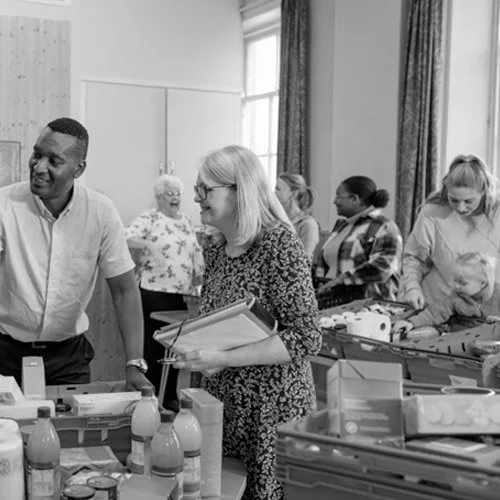Toronto’s Housing Crisis: A Snapshot
Toronto’s most recent Street Needs Assessment, conducted in October 2024, revealed a startling reality: approximately 15,418 individuals were experiencing homelessness on a single night—more than double the roughly 7,300 individuals recorded in April 2021.
Of These
12,304 were in the shelter system and bridging services.
1,615 people were unsheltered, living outdoors or in encampments
Disproportionately affected populations include:
Indigenous people, who represent about 3% of Toronto’s population but accounted for 9% of the homeless population. This disparity is linked to the intergenerational impacts of colonization, systemic discrimination, and barriers to accessing culturally appropriate services.
Racialized individuals, comprising 77% of those experiencing homelessness—far higher than their share of the general population. In Toronto, 55.7 percent of the population identify as racialized.
2SLGBTQ+ individuals (especially among refugee claimants) are also significantly overrepresented. Many face family rejection, discrimination, and unsafe shelter environments that limit their access to stable housing.
These staggering figures underscore that the housing crisis isn't a distant problem—it’s a growing emergency. Root causes include lack of affordable housing, inadequate income support and gaps in mental health care.
Toronto’s Food Insecurity Crisis
The 2024 “Who’s Hungry?” Report, published by Daily Bread Food Bank and North York Harvest, paints a devastating portrait of hunger and hardship:
3.49 million food bank visits in one year—the equivalent of Toronto’s entire population, and nearly 1 million more visits than the previous year—a 273% increase from pre-pandemic levels.
Over 10% of Torontonians rely on food banks—a 36% rise in unique clients compared to the year before.
Median monthly income for clients stands at just $1,265, barely over half of Toronto’s official poverty line of $2,397.
After rent and utilities, families have only $7.78 per person, per day left for food and essentials.
87% of clients live in unaffordable housing; 73% spend over half their income on housing, and 20% spend all of it—leaving nothing for basic needs. Tariffs and rising food costs have contributed significantly to an increase in spending on basic needs.
So, what can we do?
How Homeless Cars Helps
Homeless Cars offers vehicle donation as a powerful way to give back. By donating your car:
You help generate funds for charities on the front lines of the housing and food crises.
Those organizations provide essential support—housing placement, food access, outreach services—to Toronto’s most vulnerable.
Your car becomes a tool for real change, addressing root causes and supporting systemic solutions.
Take Action Today
Have a car? Don’t let it sit unused.
Donate to Homeless Cars and help:
Build more affordable homes.
Strengthen food safety nets for thousands.
Support communities most impacted by inequality.
Your vehicle can become a lifeline. Donate today and help build a Toronto where everyone has a place to call home—and enough to eat.



